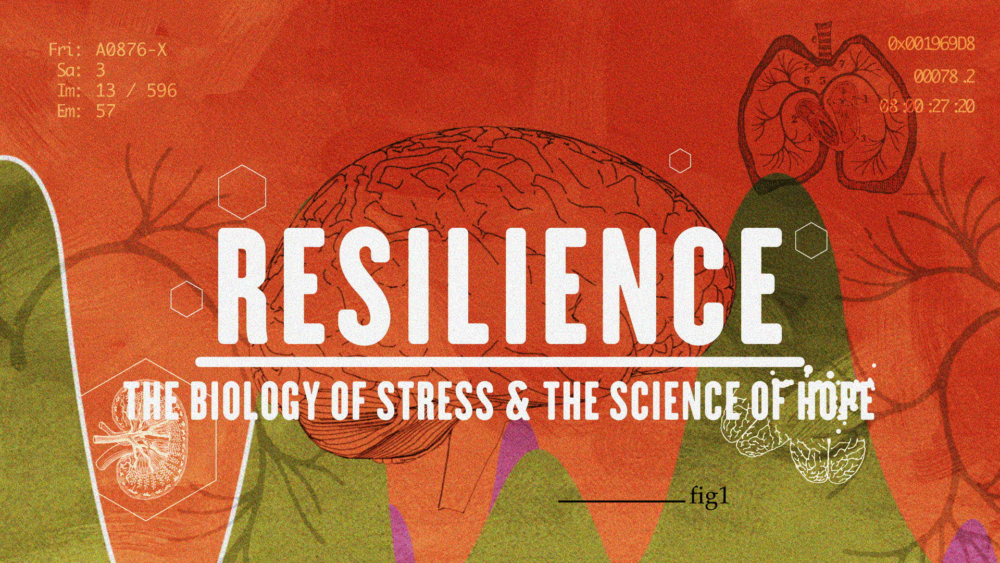FSU Hosts Enlightening Film Screening on Resilience and Stress

On February 13th, FSU faculty and students gathered with community members and leaders for a screening of Resilience: Biology of Stress and Science of Hope. Co-sponsored by the College of Social Work, Prevent Child Abuse Florida, The Oasis Center for Women and Girls, and the Resilience Officer of the City of Tallahassee, the screening was an opportunity for attendees to become educated about trauma and resiliency while making connections with others interested in the health and well-being of children and families in their community.
Resilience is a documentary which reveals how childhood stress and traumatic experiences can affect a child’s physical, mental, and overall health. When a child experiences an unhealthy amount trauma for a prolonged amount of time, stress hormones are produced which strain their brain and body. These stressful and traumatic events, referred to as Adverse Childhood Experiences (ACEs), include experiences like child abuse or dysfunction in the household such as intimate partner violence, parental substance misuse, or parental separation or divorce. The film discussed how a high number of ACEs could put children at an increased risk for behavioral problems, additional trauma, and physical health conditions. To minimize the impact of ACEs, there is a need to acknowledge and address childhood traumatic stress.
 “There is compelling research about why early intervention is so important in the ACE study, but it is not being implemented as much as it could be,” Sabrina Patch, a BSW student, shared. “I learned more about the ACE study and exactly how someone's ACE score can affect them throughout all facets of their lives. Reducing adversities early in children's lives will lead to a lot fewer issues throughout their adult lives.”
“There is compelling research about why early intervention is so important in the ACE study, but it is not being implemented as much as it could be,” Sabrina Patch, a BSW student, shared. “I learned more about the ACE study and exactly how someone's ACE score can affect them throughout all facets of their lives. Reducing adversities early in children's lives will lead to a lot fewer issues throughout their adult lives.”
The screening created a platform for passionate community members to come together, learn and strive to bolster their communities. In addition to social work students and faculty; the event attracted members of the larger Tallahassee community including volunteers, staff members of local advocacy groups, and representatives from the City of Tallahassee and the Florida Governor’s office. After the screening, the audience engaged in a discussion about the film and the ways they could take the information they learned and apply it in their communities. The diversity of the crowd’s current associations and prior experiences stimulated much of the conversation and ensured the film’s message on the importance of resilience resonated. With this message of mental health awareness being spread to multiple communities within Tallahassee, all will be making strides towards fostering a more healthy and resilient community.
Social work students reflected on how viewing the documentary impacted their thinking about intervention and prevention efforts. Several students disclosed that learning more about ACEs through the film inspired them and felt like a call to action. “As a social work student, I am lucky to be learning about trauma-informed care while I am beginning to work with clients,” MSW student Carrow Garrison emphasized, regarding the value of learning about ACEs. “Understanding the effects of trauma and toxic stress on a child’s development and their life health outcomes allows me an advantage when working with children, parents, and caregivers.”
Community leaders expressed excitement about social work students being exposed to the research about ACEs and the interventions addressing trauma at the beginning of their careers..
“Seeing students have revelations about how ACEs can impact their social work practice was exciting,” Dr. Lisa Schelbe, assistant professor at the College of Social Work and one of the organizers of the event, reflected. Equally exciting was seeing how the screening of the film brought together people to talk about change.”
Resilience emphasized that change is possible. Specifically, it stressed the importance of using our available resources. As social workers, we can administer ACE tests to clients to better assess their needs. Social workers, and other professionals can use ACE scores as a snapshot of a client’s life and what kind of residual stress they may be dealing with. This information can allow social workers to better understand client’s needs, how to effectively communicate with them, and what resources may benefit them.
Similarly, to traditional health care, social work involves balancing many factors to improve the overall health and well-being of clients. The film gave evidence of how educating and providing proper resources can have long-term, beneficial effects on a community. For example, schools using trauma-informed practices have seen student suspension rates drop 90% within the first year of application, along with improvements in academic performance.
Resilience highlighted that it is our responsibility as social workers to be informed about trauma; how to prevent it, educate others, and advocate for victims of trauma. These measures minimize the potential for new or continued trauma in children’s lives, bettering their potential for a healthy future. Resilience demonstrated that with prevention, early intervention, and education; social work could be used as a tool to help foster resilience.

